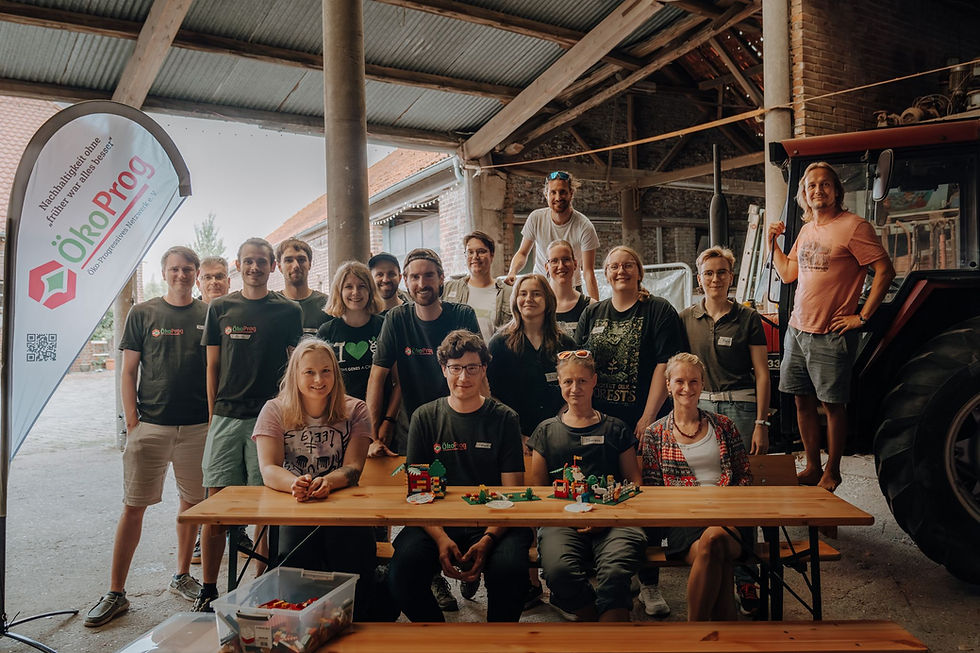Project Contributes to Welsh Biodiversity Workshop
- Taskscape Associates
- Oct 22, 2023
- 3 min read
Updated: Sep 15, 2025
Restoring the Biodiversity of Arable Habitats in Wales...

On 17-18 October 2023, a major workshop on restoring the biodiversity of arable habitats in Wales was held at the Medrus Conference Centre, Aberystwyth University.
This collaborative event, sponsored by Pembrokeshire Nature Partnership and funded by the Welsh Government, brought together farmers, conservationists, researchers, and policymakers to address the critical challenges facing wildlife in agricultural landscapes across Wales.
The workshop was supported by multiple conservation organizations including Wildlife Trusts Wales, RSPB Cymru, Plantlife, Puffin Produce Ltd (home of Blas y Tir), and others, demonstrating the collaborative approach needed to restore biodiversity in Welsh arable systems. Participants examined evidence-based conservation measures, shared experiences from successful projects, and discussed the unique opportunities and challenges present in Welsh arable habitats.
Who Took Part
The event attracted a diverse audience of stakeholders invested in Welsh agricultural biodiversity, including:
Welsh farmers and land managers seeking practical conservation solutions
Representatives from Natural Resources Wales
Conservation organisations and wildlife trusts
Agricultural advisors and consultants
Researchers from various universities and institutes
Policy makers involved in agri-environment schemes
FRAMEwork Project Presentation
The H2020 FRAMEwork project was well-represented at the workshop, with Work Package 2 'Advanced Farmer Clusters' Lead Dr Niamh McHugh and Project Deputy Coordinator and KE Lead Alastair Simmons delivering a presentation on the innovative approaches to farmer-led conservation the project is extending, piloting and researching across the UK and Europe.
Alastair was also invited to facilitate break out discussions which placed project issues at the center of debate. The FRAMEwork project is developing and testing new models for collaborative landscape-scale conservation, exploring the value of farmer clusters in achieving biodiversity goals while supporting sustainable farming practices.
Key Outcomes and Recommendations
The workshop generated valuable recommendations through structured breakout sessions focusing on different aspects of arable biodiversity restoration. Participants identified critical priorities for the Welsh Government's Sustainable Farming Scheme, emphasizing that arable options must be maintained within the 10% semi-natural habitat requirement and that the Collaborative Tier should be implemented as soon as possible to reward farmers for biodiversity delivery.
A key recommendation was to set up formalised Farmer clusters in Wales. Discussion participants called for the creation of cluster groups bringing together farms and associated NGOs, with dedicated facilitators who understand both ecology and finance. Organizations like Tyfu Cymru, Farming Connect, and GWCT were identified as potential facilitators to provide the middle ground between farmers, statutory bodies, and NGOs.
To support this, participants recommended creating a consortium comprising key farming bodies (NFU, FWAG, Farming Connect, Nature Friendly Farmers) and nature conservation NGOs to develop an effective arable biodiversity network across Wales. This recommendation aligns directly with the FRAMEwork project's proven farmer cluster approach, demonstrating the value of this collaborative model.
The workshop also highlighted urgent needs for improved support systems, including a single point of contact for farmers to receive unified messaging, with "arable ambassadors" from the farming community serving as strategic contact points. Participants emphasized the importance of demonstration farms, biodiversity identification training through local Biodiversity Information Centres, and more flexible, results-based payment schemes that reward farmers for biodiversity outcomes.
Specific recommendations for the Sustainable Farming Scheme included support for unsprayed arable margins (identified as the "gold star" option), unsprayed winter cereals, and implementing "land sharing rather than land sparing" approaches to avoid creating biodiversity deserts in field centers.
Watch the Sessions Online
Recordings of the sessions are now available on YouTube. The workshop sessions covered a range of topics from practical habitat management techniques to policy discussions and farmer experiences:
Session 2: Watch here
Session 3: Watch here
Session 4: Watch here
Session 5: Watch here
Session 6: Watch here
Note: If any link doesn't take you directly to the recording, please copy and paste it into your browser address bar.



